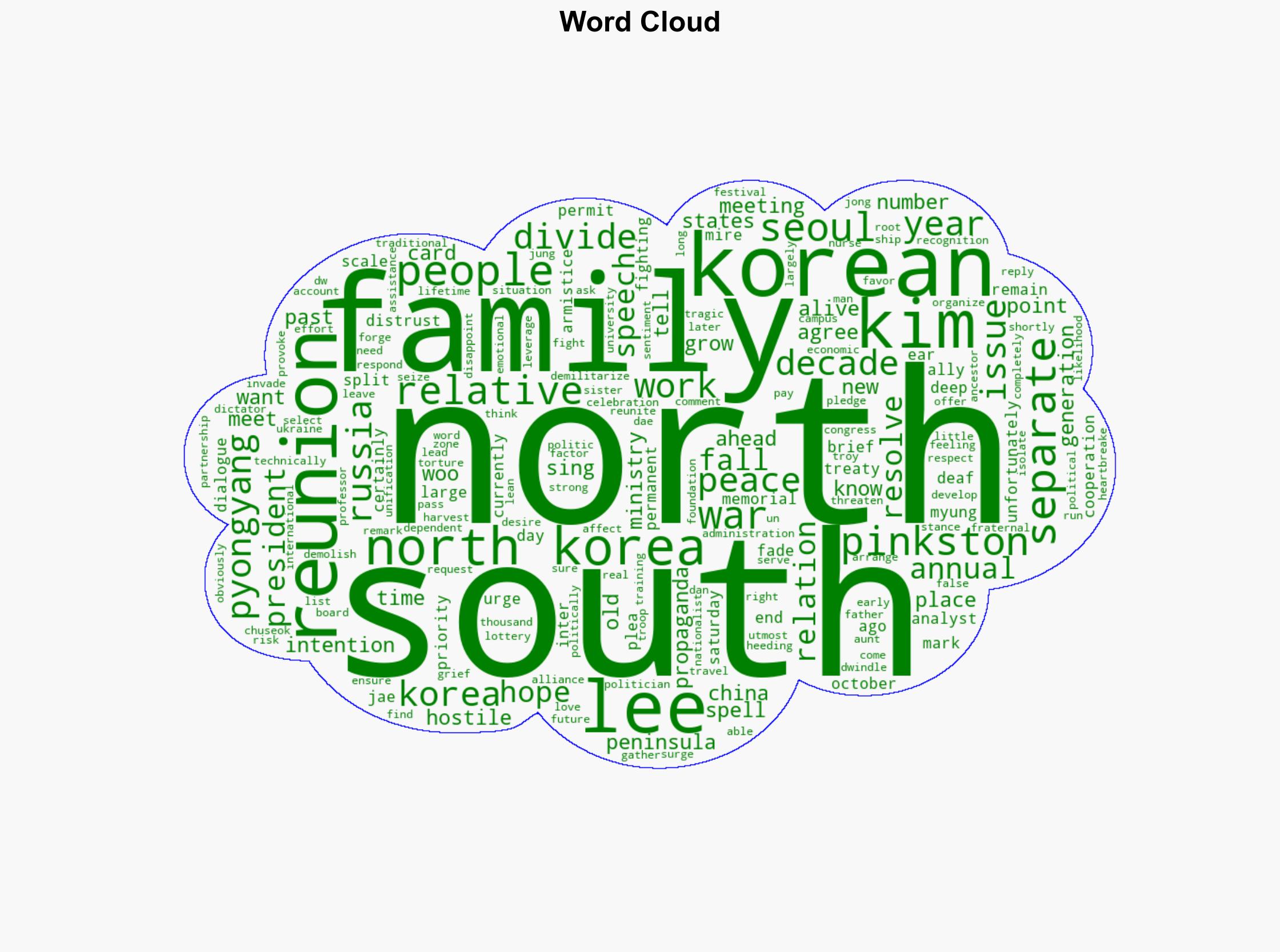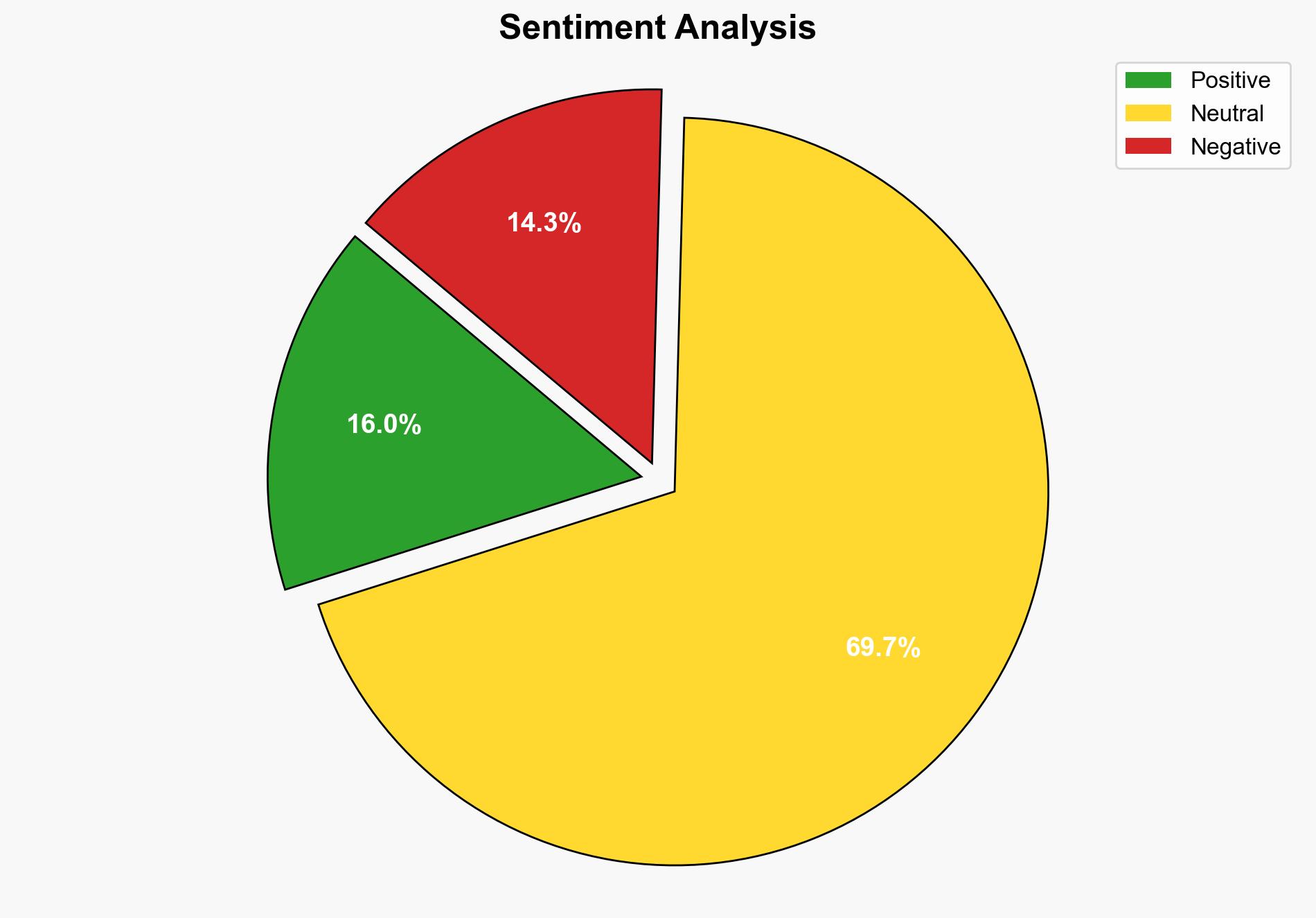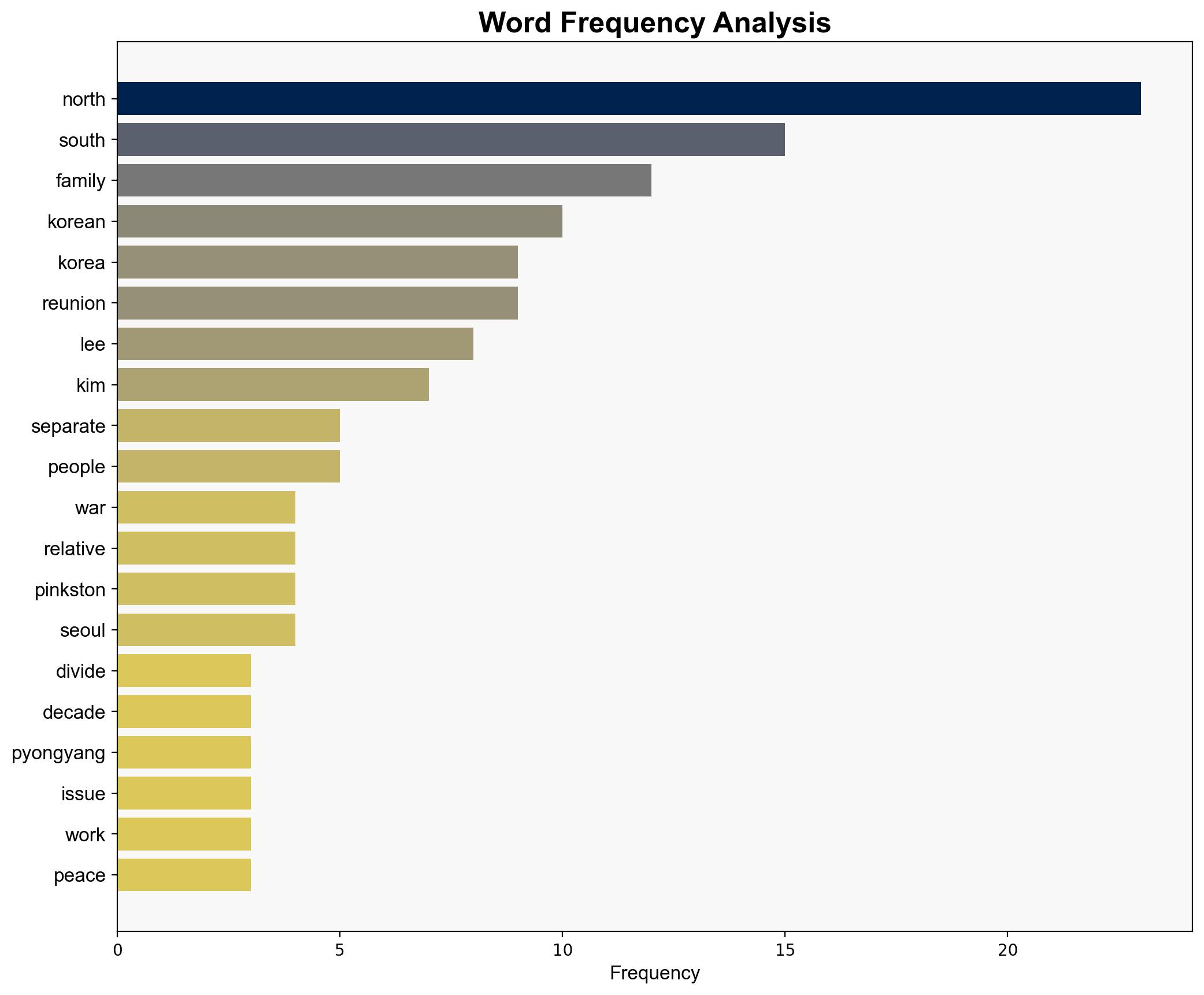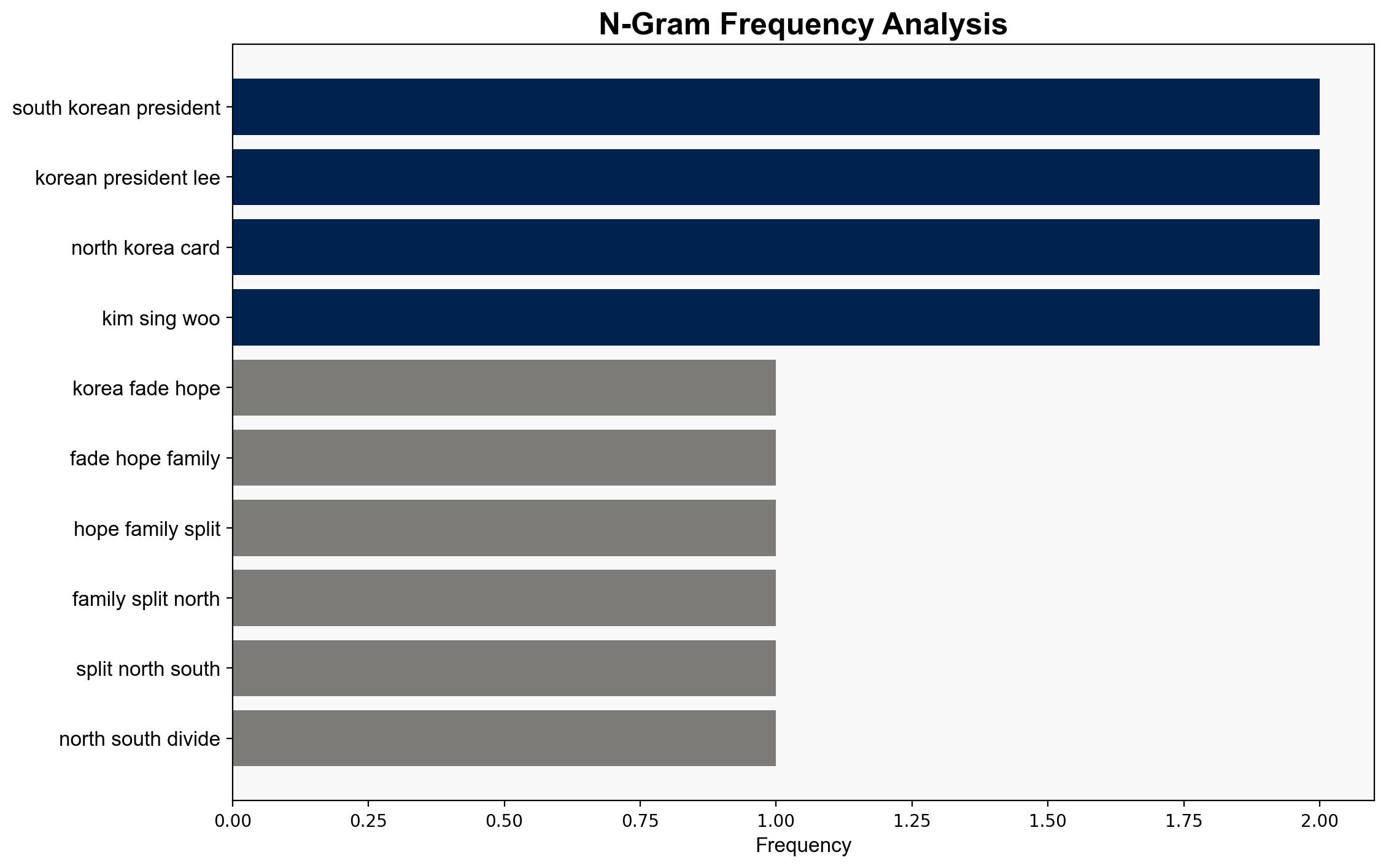Korea Fading hopes for families split by North-South divide – DW (English)
Published on: 2025-10-09
Intelligence Report: Korea Fading hopes for families split by North-South divide – DW (English)
1. BLUF (Bottom Line Up Front)
The most supported hypothesis is that North Korea is unlikely to engage in family reunions due to strategic alliances and internal propaganda needs. Confidence level: Moderate. Recommended action: South Korea should explore indirect diplomatic channels and leverage international partners to apply pressure on North Korea while preparing for potential humanitarian initiatives.
2. Competing Hypotheses
1. **Hypothesis A**: North Korea will agree to family reunions as a goodwill gesture to improve relations with South Korea and the international community.
– **Supporting Evidence**: Historical precedents of reunions, South Korea’s diplomatic overtures.
– **Contradictory Evidence**: Recent hostile actions by North Korea, such as demolishing the traditional meeting place.
2. **Hypothesis B**: North Korea will not engage in family reunions due to strategic alliances with China and Russia, and its need to maintain internal propaganda.
– **Supporting Evidence**: North Korea’s political isolation, dependence on China and Russia, and the regime’s control over national narratives.
– **Contradictory Evidence**: Potential economic incentives from South Korea.
3. Key Assumptions and Red Flags
– **Assumptions**:
– North Korea values its alliances with China and Russia over potential economic benefits from South Korea.
– South Korea’s diplomatic efforts are perceived as genuine by North Korea.
– **Red Flags**:
– Lack of recent direct communication from North Korea regarding reunions.
– Potential cognitive bias in assuming economic incentives will influence North Korea’s decisions.
4. Implications and Strategic Risks
– **Geopolitical Risks**: Continued division may exacerbate tensions on the Korean Peninsula, impacting regional stability.
– **Psychological Impact**: Prolonged separation could fuel anti-North Korean sentiment in South Korea, complicating future diplomatic efforts.
– **Cascading Threats**: Failure to engage could lead to increased militarization and further isolation of North Korea.
5. Recommendations and Outlook
- **Short-term**: Engage in back-channel diplomacy through intermediaries to gauge North Korea’s stance.
- **Medium-term**: Collaborate with international partners to apply diplomatic pressure on North Korea.
- **Long-term**: Develop humanitarian initiatives that can be implemented if North Korea shows willingness to cooperate.
- **Scenario Projections**:
– **Best Case**: North Korea agrees to reunions, leading to improved relations.
– **Worst Case**: Increased hostilities and further isolation of North Korea.
– **Most Likely**: Status quo with sporadic diplomatic engagements.
6. Key Individuals and Entities
– Lee Jae Myung
– Kim Jong Un
– Kim Sing Woo
– Dan Pinkston
7. Thematic Tags
national security threats, geopolitical stability, humanitarian issues, regional diplomacy





